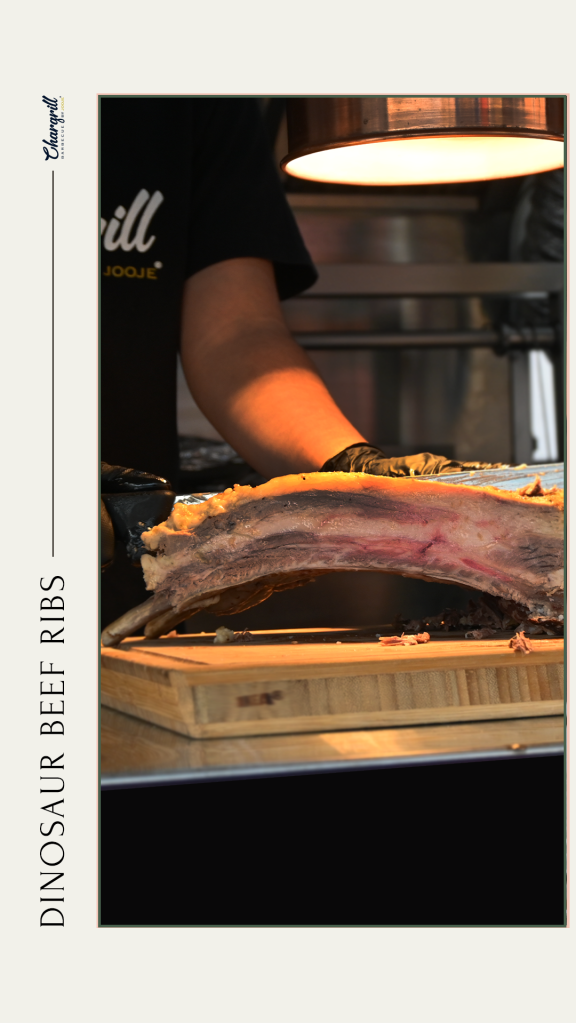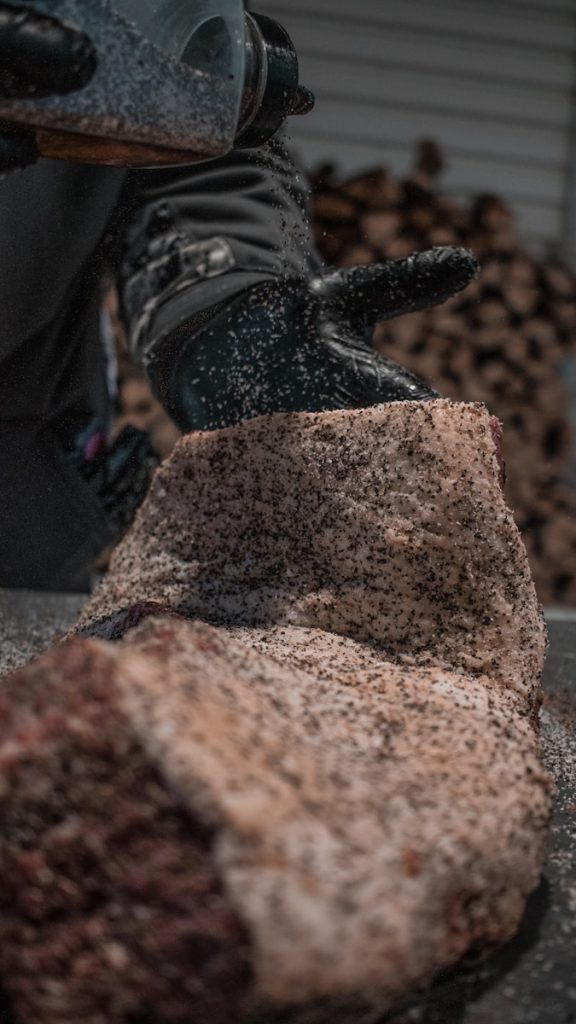Barbecue catering in gold coast has long been a beloved culinary tradition, especially during summer in Australia, where outdoor cooking is a quintessential part of the lifestyle. From casual backyard gatherings to grand corporate events, BBQ catering has become increasingly popular, bringing the rich flavours and aromas of smoked meats to a variety of settings. At the heart of this trend are skilled BBQ pit masters, whose expertise transforms simple ingredients into mouth-watering feasts. This article delves into the critical role of BBQ pitmaster in on-site catering, exploring their skills, techniques, and the unique challenges they face.
Historical Background of BBQ Pit master
The history of BBQ pitmasters is as rich and smoky as the meats they prepare. BBQ, in its many forms, has ancient roots, with methods of cooking meat over fire dating back to early human history. However, the term “pitmaster” and the modern BBQ techniques we recognize today have more recent origins.
In the United States, BBQ has distinct regional styles—such as Texas style bbq in gold coast, Kansas City, Carolina, and Memphis—each with its own traditions and flavours. The role of the pitmaster emerged as a critical figure in these regions, responsible for the intricate process of smoking meat. In Australia, the BBQ tradition has been influenced by these American styles, but it has also developed its unique characteristics, blending local flavours and ingredients.
Pitmasters are often seen as the custodians of these traditions, with their skills passed down through generations. The techniques and recipes they use have been honed over decades, if not centuries, making the BBQ pitmaster a vital link to culinary history.
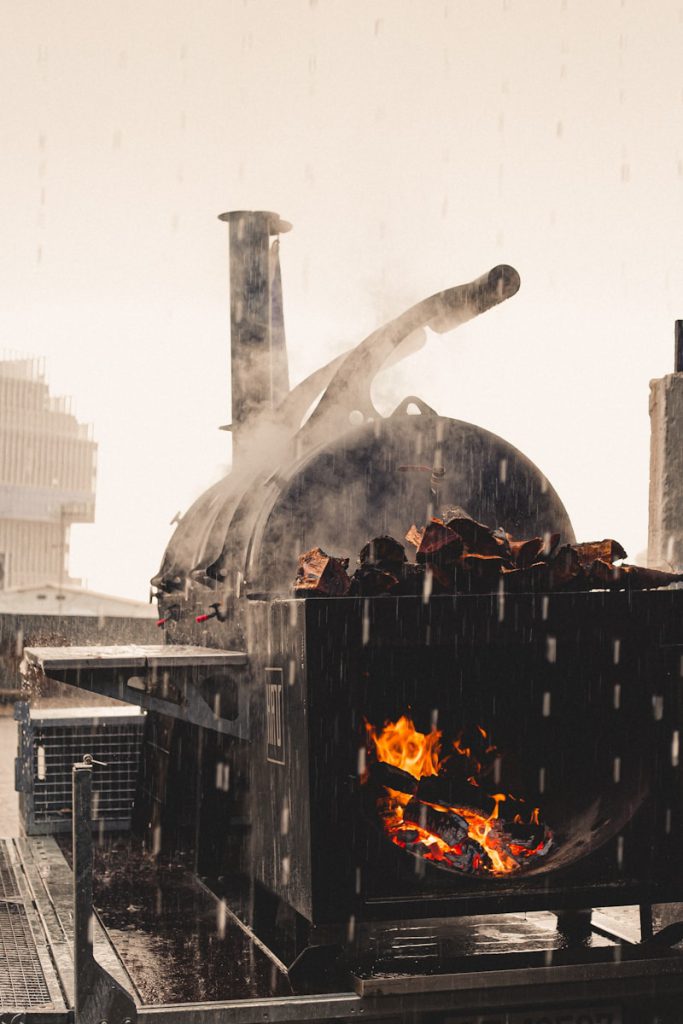
The Importance of Skilled BBQ Pitmasters
The role of a skilled BBQ pitmaster extends beyond merely cooking meat; it is an art and a science. The balance of flavours, textures, and aromas that defines great BBQ requires a deep understanding of the cooking process and a keen sense of timing and temperature control.
Flavour Mastery: One of the most critical aspects of BBQ is the flavour profile. This includes the choice of wood for smoking, the seasoning of the meat, and the timing of adding different elements to the cook. A pitmaster’s palate is finely tuned to balance the smokiness with the spices and the natural flavours of the meat.
Technical Skills: Managing the BBQ equipment, whether it’s a traditional offset smoker, a modern pellet grill, or a simple charcoal grill, requires technical expertise. The pitmaster must maintain a consistent temperature over several hours, sometimes even days, ensuring the meat cooks evenly and absorbs the right amount of smoke.
Experience and Intuition: While there are scientific principles behind BBQ, much of it also relies on the pitmaster’s intuition and experience. Knowing when to adjust the airflow, add more fuel, or wrap the meat to retain moisture comes from years of practice and a deep understanding of the cooking process.
Training and Qualifications of a BBQ Pit-Master
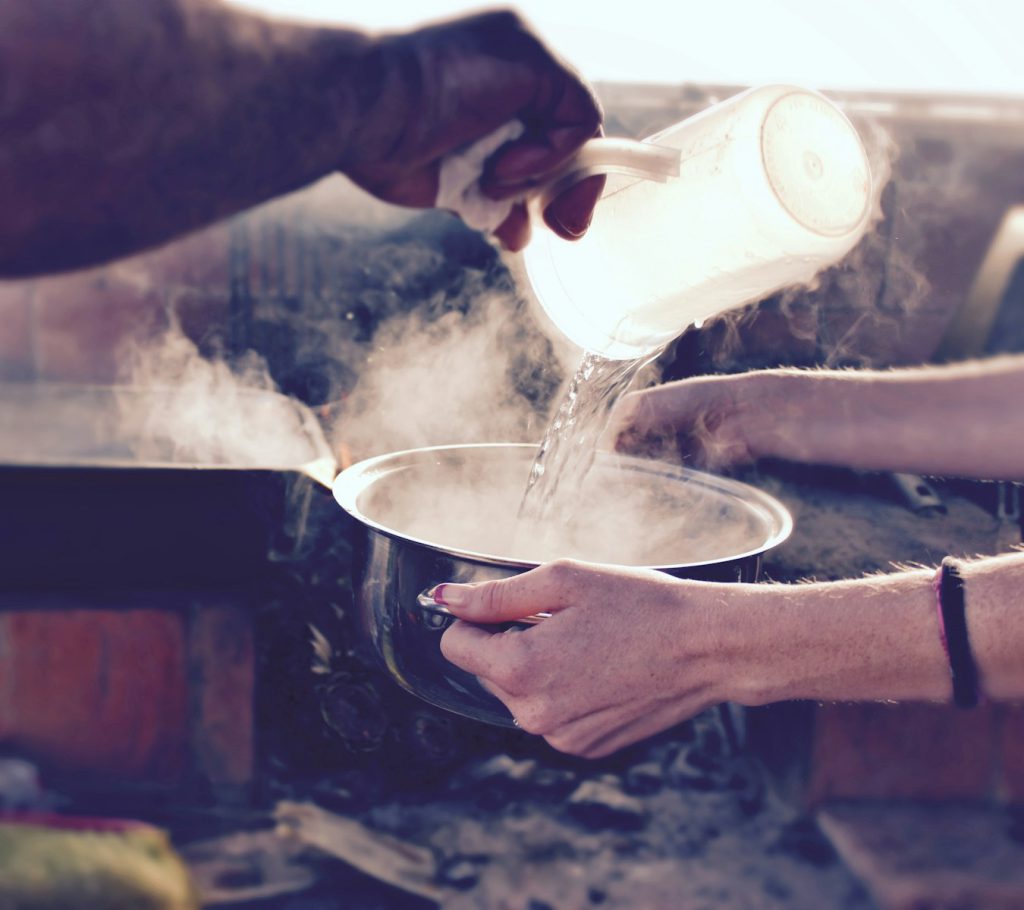
Becoming a skilled BBQ pitmaster is not a straightforward journey; it requires dedication, hands-on experience, and continuous learning. The path typically involves a combination of formal training, practical experience, and mentorship.
Formal Training: While there are no universally required certifications for pitmasters, several courses and workshops are available. These programs cover the fundamentals of BBQ, including meat selection, seasoning techniques, and smoker management. Institutions like the BBQ School in Australia offer courses tailored to different skill levels.
Hands-On Experience: Much of a pit master’s expertise is gained through practical experience. This often starts with backyard BBQs, where aspiring pitmasters experiment with different techniques and recipes. Over time, this experience can lead to opportunities to work with established BBQ restaurants or catering services, where they can refine their skills under the guidance of experienced pit-masters.
Mentorship: Learning from seasoned pitmasters is a crucial aspect of becoming skilled in the art of BBQ. Mentorship provides insights that cannot be learned from books or courses alone, such as the subtle cues that indicate when meat is perfectly cooked or how to adjust techniques based on different conditions.
The Role of PitMasters in On-Site Catering
In on-site catering, the role of the BBQ pitmaster is multifaceted. They are responsible for setting up the BBQ equipment, preparing the food, and ensuring a seamless service. Here’s a closer look at their responsibilities:
Setup and Preparation: The pitmaster arrives at the site well in advance to set up the BBQ equipment. This involves arranging the smokers or grills, setting up tables for prep work, and ensuring all necessary tools and ingredients are on hand. Preparation also includes marinating and seasoning the meat, which is often done the night before the event.

Customizing the Menu: One of the strengths of on-site BBQ catering is the ability to customize the menu to suit the event and the guests’ preferences. Pitmasters work with event planners to create a menu that includes a variety of meats, sides, and sauces. They may also prepare vegetarian options and accommodate dietary restrictions.
Cooking and Serving: During the event, the pitmaster manages the cooking process, ensuring each cut of meat is cooked to perfection. This requires constant attention to the smokers or grills, adjusting temperatures, and monitoring the meat. Once the food is ready, the pitmaster often carves and serves the meat, adding a personal touch to the dining experience.
Food Safety and Hygiene: Ensuring food safety is a critical aspect of on-site catering. Pitmasters adhere to strict hygiene standards, including proper handling of raw and cooked meats, maintaining clean workspaces, and ensuring the food is stored and served at safe temperatures.
Coordination and Teamwork: Pitmasters coordinate with other catering staff to ensure the event runs smoothly. This includes timing the cooking to align with the event schedule, managing the serving process, and addressing any issues that arise during the event.
Techniques and Equipment Used by Pitmasters
The techniques and equipment used by BBQ pitmasters are diverse and tailored to the specific requirements of each event. Here are some key techniques and equipment commonly used in on-site catering:
Smoking: Smoking is the hallmark of BBQ, involving cooking meat at low temperatures for extended periods. This method imparts a deep, smoky flavour to the meat. Pitmasters use different types of wood, such as hickory, oak, and fruit woods, each adding a unique flavour profile.
Grilling: While smoking is a slow process, grilling is a faster method suitable for cooking steaks, burgers, and vegetables. Pitmasters use high-heat grills to sear the meat, locking in juices and creating a caramelized crust.
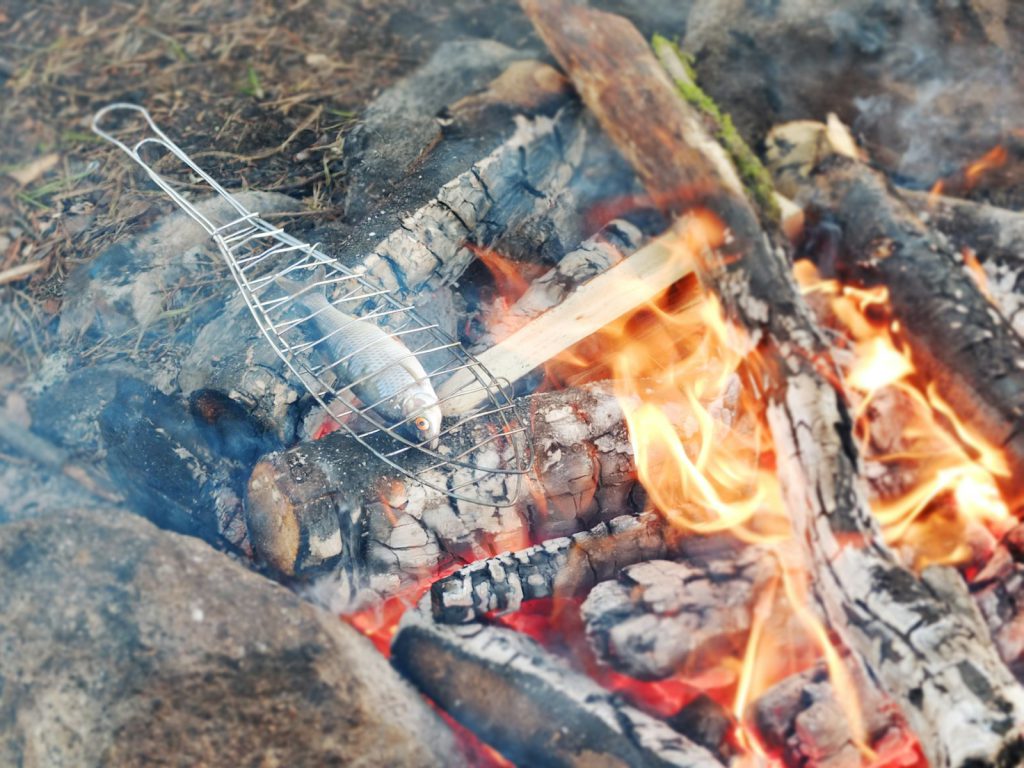
Roasting: For larger cuts of meat, such as whole hogs or turkeys, roasting is a common technique. This involves cooking the meat at moderate temperatures in a closed environment, ensuring even cooking and tender results.
Equipment: The choice of equipment is crucial for successful BBQ. Common tools include offset smokers, which use a separate firebox to generate heat and smoke; pellet grills, which provide precise temperature control; and charcoal grills, known for their versatility and high-heat capabilities. Pitmasters also use thermometers, knives, and other tools to manage the cooking process effectively.
Temperature Control: Maintaining consistent temperatures is one of the most challenging aspects of BBQ. Pitmasters use techniques such as adjusting the airflow, adding fuel at regular intervals, and using water pans to stabilize the temperature.
Challenges Faced by On-Site BBQ Masters
On-site BBQ catering presents unique challenges that require skill and adaptability. Here are some common challenges faced by pitmasters and how they address them:
Environmental Factors: Outdoor events expose pitmasters to varying weather conditions, such as wind, rain, and extreme temperatures. These factors can affect the cooking process, making it challenging to maintain consistent temperatures. Experienced pitmasters adapt by setting up windbreaks, using insulated smokers, and adjusting their techniques based on the conditions.
Large Crowds: Catering to large groups requires efficient time management and coordination. Pitmasters must ensure that all guests are served promptly without compromising on quality. This often involves cooking multiple batches of meat and coordinating with serving staff to manage the flow of food.
Consistent Quality: Ensuring consistent quality across large quantities of meat is crucial for a successful event. Pitmasters achieve this through meticulous planning, precise execution, and constant monitoring of the cooking process. They also use techniques such as wrapping the meat in foil to maintain moisture and prevent overcooking.
Troubleshooting: Unexpected issues can arise during on-site catering, such as equipment malfunctions or supply shortages. Pitmasters must be adept at troubleshooting and finding quick solutions to keep the event running smoothly. This may involve having backup equipment, sourcing additional supplies, or adjusting the menu on the fly.
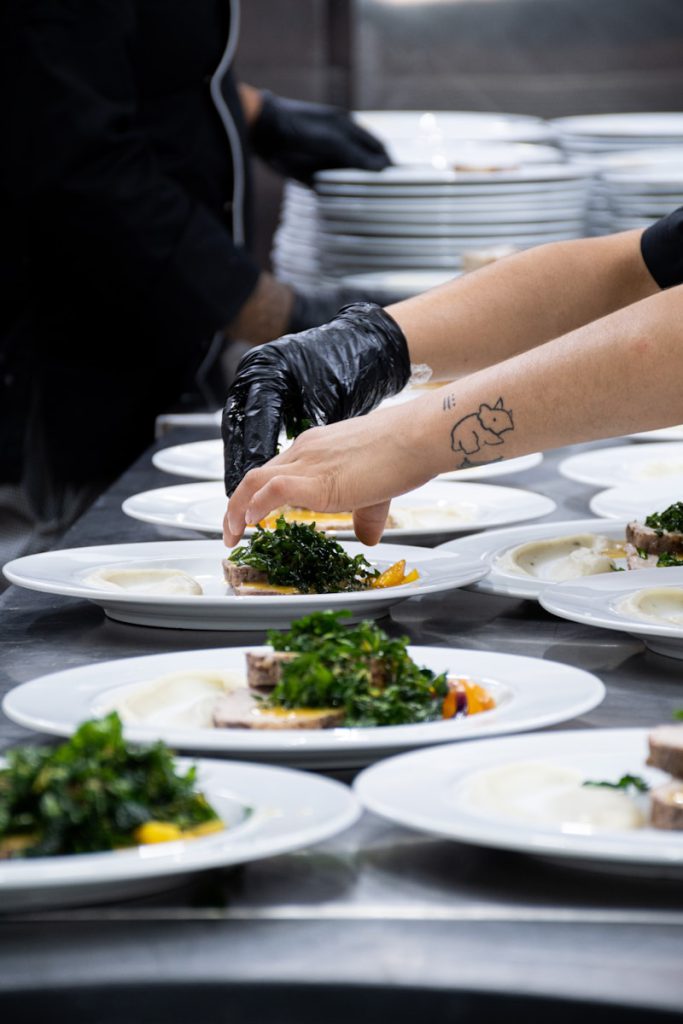
Case Studies: Successful BBQ Catering Events
To illustrate the impact of skilled BBQ pitmasters in on-site catering, here are some real-life examples of successful events:
Wedding Reception: A couple in Brisbane hired a BBQ catering service for outdoor wedding reception. The pitmaster worked closely with the couple to create a customized menu that included smoked brisket, pulled pork, and grilled vegetables. Despite unexpected rain on the day of the event, the pitmaster set up a sheltered cooking area and delivered a memorable dining experience for the guests. The couple received numerous compliments on the food, highlighting the pitmaster’s ability to adapt and deliver high-quality BBQ under challenging conditions.
Corporate Event: A large tech company in Sydney hosted a team-building event with a BBQ lunch. The pitmaster prepared a variety of meats, including smoked sausages, smoked dinosaur ribs, and chicken, as well as vegetarian options. The event planners were impressed by the pitmaster’s professionalism and attention to detail, ensuring that all dietary preferences were accommodated. The BBQ lunch was a highlight of the event, with employees praising the delicious food and the engaging cooking demonstrations provided by the pitmaster.
Community Festival: A community festival on the Gold Coast featured a BBQ food truck operated by a skilled pitmaster. The pitmaster offered a menu of classic BBQ items such as pulled pork sandwiches, beef ribs, and smoked chicken wings. The event attracted a large crowd, and the pitmaster’s ability to manage the high demand without compromising quality was impressive. The food truck quickly became the star attraction of the festival, with long lines of attendees eager to taste the expertly smoked meats. The pitmaster also engaged with the crowd, sharing BBQ tips and demonstrating techniques, adding an educational element to the event.
These case studies underscore the importance of skilled BBQ pitmasters in creating memorable culinary experiences. Their ability to adapt to different environments, manage large crowds, and deliver consistently high-quality food is what sets them apart.
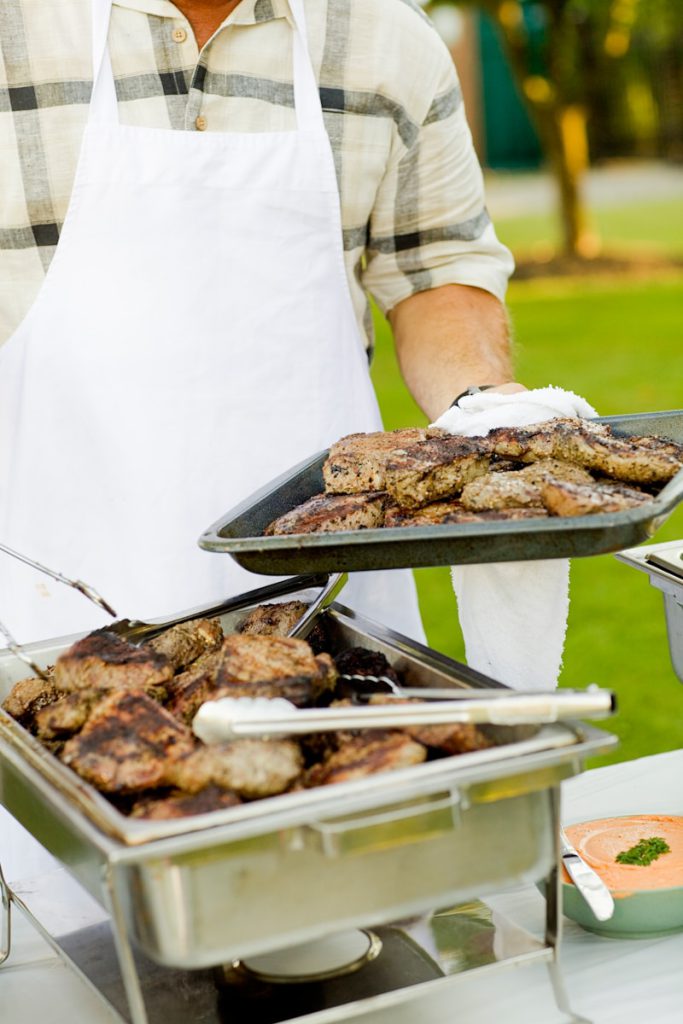
Future Trends in BBQ Catering
The catering industry continues to evolve, driven by changing consumer preferences and technological advancements. Here are some emerging trends that are shaping the future of BBQ catering:
Sustainability: There is a growing emphasis on sustainability in the food industry, and BBQ catering is no exception. Pitmasters are increasingly sourcing locally-produced, organic meats and sustainable wood for smoking. Additionally, eco-friendly practices, such as minimizing waste and using biodegradable serving materials, are becoming more common.
Health-Conscious Options: As consumers become more health-conscious, BBQ catering services are adapting by offering healthier menu options. This includes leaner cuts of meat, plant-based BBQ dishes, and sides made with fresh, seasonal vegetables. Pitmasters are also experimenting with alternative cooking methods, such as sous-vide, to retain the nutritional value of the food.
Fusion Flavours: The fusion of different culinary traditions is another trend in BBQ catering. Pitmasters are blending traditional BBQ techniques with flavours and ingredients from other cuisines, such as Asian, Mediterranean, and Latin American. This fusion approach creates unique and exciting dishes that appeal to a broader audience.
Technology Integration: Advancements in technology are revolutionizing BBQ catering. High-tech smokers and grills with precise temperature controls and automated features are becoming more prevalent. These innovations allow pitmasters to achieve consistent results with less manual effort. Additionally, mobile apps and digital platforms are streamlining the booking and planning process for catering events.
Interactive Experiences: BBQ catering is increasingly focusing on providing interactive and immersive experiences for guests. This includes live cooking demonstrations, BBQ masterclasses, and hands-on grilling sessions. These interactive elements not only enhance the dining experience but also educate guests about the art of BBQ.
Conclusion
Skilled BBQ pitmasters play a crucial role in the success of on-site catering, bringing their expertise, passion, and creativity to every event. Their ability to balance flavours, manage complex cooking processes, and adapt to different environments ensures that guests enjoy a memorable culinary experience. As the BBQ catering industry continues to evolve, pitmasters will remain at the forefront, driving innovation and setting new standards for quality and service.
The future of BBQ catering looks promising, with trends such as sustainability, health-conscious options, fusion flavours, and technology integration shaping the industry. By staying abreast of these trends and continually honing their skills, BBQ pitmasters will continue to delight and inspire guests at events of all sizes.
In conclusion, the role of skilled BBQ pitmasters in on-site catering is indispensable. Their expertise not only elevates the quality of the food but also enhances the overall experience for guests. As BBQ catering grows in popularity, the demand for talented pitmasters will undoubtedly continue to rise, ensuring that the rich tradition of BBQ remains alive and well for generations to come.


